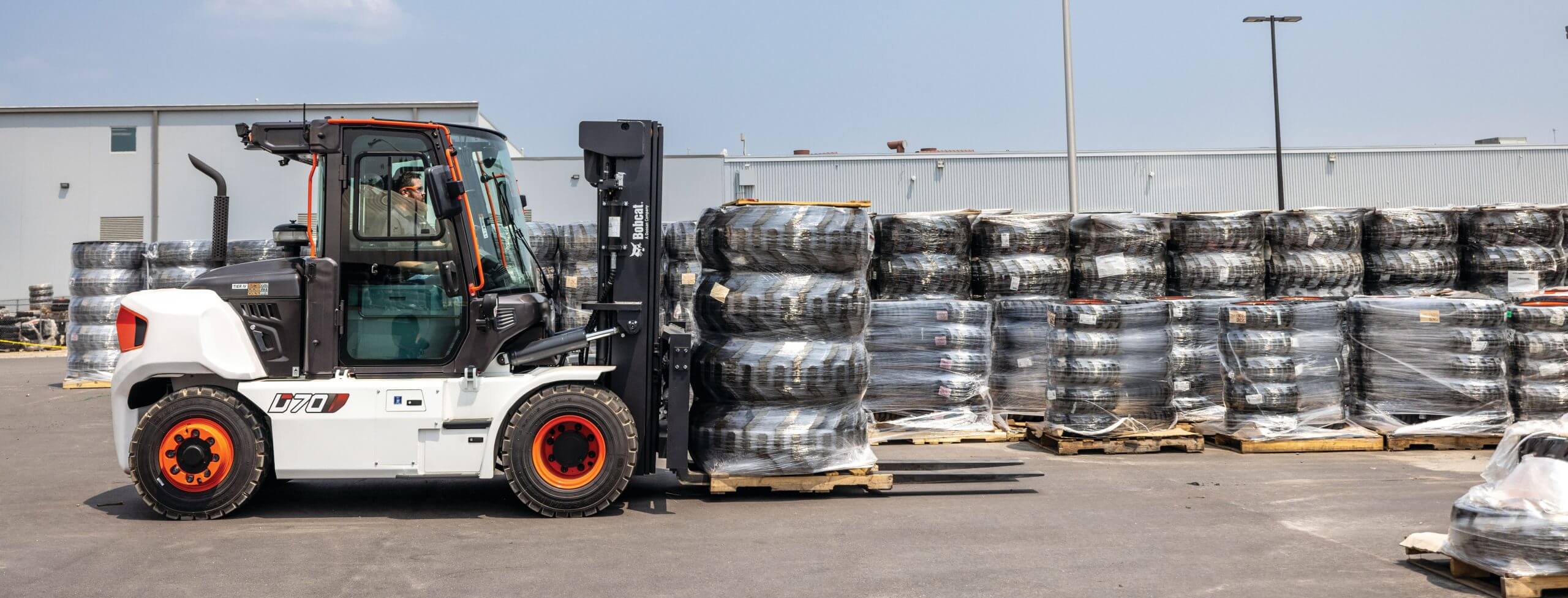In the fast-paced industrial environment of Houston, businesses need efficient and flexible solutions to manage their operations. One such solution is forklift rental. For companies that don’t want to invest heavily in purchasing new equipment, forklift rental Houston TX services provide a practical and cost-effective alternative. However, with so many rental providers in the market, how do you choose the best one for your needs?
This guide breaks down the most important factors to consider when selecting a forklift rental provider in Houston, helping you make a smart, informed decision that aligns with your business goals.
Why Businesses in Houston Choose Forklift Rentals
Houston is home to a diverse range of industries, from logistics and warehousing to oil and gas, construction, and manufacturing. These sectors often require forklifts for material handling, but needs can vary greatly. Renting a forklift allows businesses to scale operations based on demand, avoid the long-term costs of ownership, and access modern, well-maintained equipment.
Some of the most common scenarios where companies seek forklift rental Houston TX solutions include:
- Short-term projects or seasonal demand
- Emergency equipment replacement
- Trials before committing to purchase
- Expanding warehouse operations
- Budget constraints or cash flow considerations
Key Factors to Consider When Choosing a Forklift Rental in Houston TX
Not all forklift rental services are created equal. To ensure you partner with a reliable and professional provider, consider the following factors during your selection process:
1. Equipment Variety and Availability
The first step in choosing a rental company is assessing its inventory. A good provider should offer a wide selection of forklift types, including:
- Electric forklifts for indoor use
- Diesel or LPG forklifts for outdoor or heavy-duty applications
- Narrow-aisle forklifts
- Reach trucks and pallet jacks
- Rough terrain forklifts for construction sites
Check if the rental company has equipment that suits your specific lifting capacity and height requirements. Availability also matters. The best forklift rental Houston TX companies can accommodate urgent or last-minute needs.
2. Maintenance and Condition of Equipment
One of the biggest risks with renting is receiving poorly maintained equipment. A reputable rental provider will offer forklifts that are regularly serviced, safety-checked, and in good working condition.
Ask about the maintenance schedule and request service records if possible. Some rental companies perform routine inspections before delivery, while others offer on-site maintenance support during the rental period.
3. Rental Terms and Flexibility
Flexible rental terms can make a significant difference for your business. Choose a provider that offers daily, weekly, and monthly options, allowing you to rent forklifts for exactly as long as needed.
Ask the following questions:
- Is there a minimum rental duration?
- Are there discounts for long-term rentals?
- What is the policy for early returns or rental extensions?
- Are delivery and pickup charges included in the quote?
A flexible provider understands that business conditions change and will work with you to adjust the terms accordingly.
4. Pricing Transparency
Transparent pricing is a key indicator of a professional forklift rental service. Make sure the company provides a detailed quote that includes:
- Rental rate
- Delivery and pickup fees
- Fuel or charging costs
- Maintenance or service fees
- Insurance coverage if required
Avoid providers that give vague pricing or have hidden fees in the contract. Comparing quotes from multiple forklift rental Houston TX businesses can also help you find the best value for your money.
5. Customer Service and Support
Responsive and knowledgeable customer service is crucial. Your rental partner should be available to answer questions, provide technical support, and respond quickly in case of breakdowns or safety issues.
Some companies offer 24/7 support or assign a dedicated account manager to your business. This level of service is particularly valuable if your operations run beyond standard business hours.
6. Reputation and Reviews
Before committing to any rental provider, take time to research their reputation. Look for customer reviews on Google, Yelp, or local business directories. Positive testimonials and long-standing relationships with other Houston businesses are signs of a dependable rental partner.
You can also check if the company is certified or affiliated with industry organizations such as the Material Handling Equipment Distributors Association (MHEDA) or local chambers of commerce.
Top Questions to Ask a Forklift Rental Provider
To ensure you’re making the right choice, consider asking the following questions during your evaluation:
- What types of forklifts do you have available?
- How often is the equipment serviced?
- Do you offer same-day or next-day delivery?
- What is your minimum rental period?
- Can I rent accessories or attachments with the forklift?
- Do you provide on-site repair or maintenance services?
Getting clear answers to these questions will help you avoid surprises and make a confident decision.
Benefits of Choosing the Right Forklift Rental Partner
When you select the right forklift rental Houston TX provider, you gain more than just equipment. You benefit from:
- Improved operational efficiency
- Reduced downtime due to equipment failure
- Lower upfront investment
- Access to newer, more efficient models
- Professional advice and support from experts
These advantages help your business stay competitive and responsive to changing demands.
Conclusion
Forklift rentals offer Houston businesses a practical solution to meet their material handling needs without the high costs of ownership. But not all rental providers are created equal. Choosing the best forklift rental Houston TX company means looking beyond just price. It involves evaluating equipment quality, service reputation, rental flexibility, and support responsiveness.
